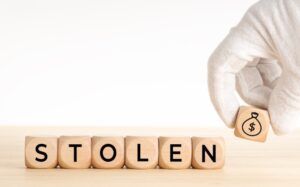Navigating the Complex Terrain of Stolen Items in an Estate
Families diligently plan their estates to organize and distribute money and property for the benefit of their loved ones. For most families, what they leave has been hard-earned by them throughout their lives. However, there are circumstances of stolen property within an estate. The discovery of such can lead to legal, financial, and emotional complexities. This article discusses stolen items in the estate and what you can do.

Seized Assets and Private Letter Rulings
The government can confiscate property it suspects is linked to illegal activity. Even if a family member acquired an item from a trustworthy dealer or inherited it many years ago, authorities can seize it if it is deemed stolen. Further, according to a private letter ruling, if a family discovers stolen items after a loved one’s death, the Internal Revenue Service could include the property’s fair market value in the deceased’s estate for estate tax purposes, even after it has been seized. Unfortunately, this family could owe an estate tax without the ability to sell the item to settle the estate tax liability.
Coming into Possession of Stolen Items
If a stolen item has become part of a loved one’s estate, this can cause a lot of emotional turmoil and confusion. However, it’s essential to recognize that your loved one may have obtained the item through an auction or as a gift in some situations. They may not have known because a lack of transparent ownership or a historical record can make it challenging to identify stolen items. Common places people may come across stolen goods are online marketplaces, garage sales, and unregulated secondhand stores.
Accountability Comes Down to Knowledge
Not everyone is held accountable for possessing stolen goods. However, whether or not a person is prosecuted or convicted of possessing stolen property depends on two factors that both come down to knowledge:
- Knowledge that the item was stolen. For example, one will likely not be held accountable if it is impossible to know it was stolen.
- Knowledge that the item was in your possession. It’s possible to find oneself in possession of a stolen item unintentionally. Regardless, they will most likely not be held accountable if they are honest, open, and prompt.
Address Suspicions
Proactively address any suspicions during your family member’s lifetime by taking steps to ensure the legitimacy of items with an estate attorney. For example, if there is even a hint of uncertainty, an estate planning attorney can:
- Research the item’s history to trace its ownership to its origin.
- Seek guidance from professionals who can validate legitimate ownership.
- Swiftly report the situation to law enforcement to actively contribute to recovering stolen property and prevent legal complications.
Proper Estate Planning Protects You and Your Family
Estate planning attorneys conduct due diligence in documenting assets, ensuring that proper records and provenance are maintained. Without a doubt, this work helps identify any irregularities or potential issues with the ownership history of assets. Where there is one suspicious item, there could be more. Contact our office today if you have questions or concerns about an inheritance.
